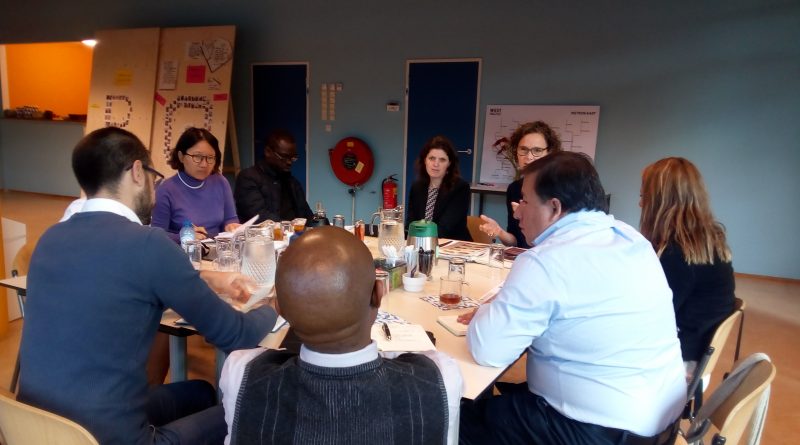Rotterdam-Barcelona Study Tour, within the framework of Local Security Audits in three cities of Latin America and Africa
From November 13 to 17, as part of the activities for the implementation of Local Safety Audits in three cities of Latin America and Africa: 1) Querétaro-México, 2) Cartagena-Colombia and 3) Durban-South Africa; a Study Tour was held in the cities of Rotterdam and Barcelona.
The Study Tour purpose was to support local authorities of the three cities with an approach to civil society, policies and plans for the prevention of urban crime based on evidence, as well as monitoring frameworks that address the multi-causal factors of violence and crime in Rotterdam and Barcelona, as successful practices examples.
On Monday, November 13, some activities took place in Rotterdam City, where the community of Tussendijken was visited, and officials of the Department of Public Security of Rotterdam made an introduction to their programs Safer Neighborhoods and The Bouwkeet Center, that offers several community activities with the aim of preventing crime. Also, other programs that are being developing at the city were presented, as The Rotterdam Resilience Strategic Program, the Barrios Insurance Action Program and the indexes of Security, Social and Psychological Index. A meeting with the Director of the Public Security Department of Rotterdam, André Vevooren, was carried out who commented that the work of public security in the city has a long history and they have implemented different strategies to contain and prevent crime.


On Tuesday, November 15, the Urban Thinkers Campus: Laboratory of the city of Barcelona on safer cities, took place, organized by UN-Habitat at the Medicine Faculty of Barcelona University. It was attended by several experts who spoke about the Victimization Survey of Barcelona, its methodology and innovations implemented, about the use of tools toward smarter and safer cities; as the use of geographic information systems (GIS) and analysis through Big Data and discussions on the importance of the Urban Security Forums, such as the cases of EFUS (European Forum for Urban Safety), AFUS (African Forum for Urban Safety) and FEPSU (Spanish Forum for Urban Safety and Prevention). During the event, the Center of Excellence (CdE) announced the stages of implementation that have been developed in Querétaro City within the framework of the Local Safety Audit.

From November 14 to 17, the European Forum for Urban Safety in its 2017 broadcast and 30 years after its creation, was realized. The objective of this forum is to generate a discussion space on the possible answers as a solution to problems in the national and international level. It was attended by crime prevention experts, local governments representatives, universities representatives and civil society. In general, for three days, the importance of knowing the causes of insecurity and sharing information among different sectors and levels of government was discussed; also, the relevance of diagnoses and interventions at the local level to new forms of manifestation of crime. As well, the participation of local level governments acquires great relevance. As part of the discussion, the need for a paradigm shift was presented, where co-production begins to be talked about, and actions and their monitoring become effective. It is necessary to rebuild institutional trust and work under the standards of the Sustainable Development Goals (SDG’s) facing the United Nations 2030 Agenda.





